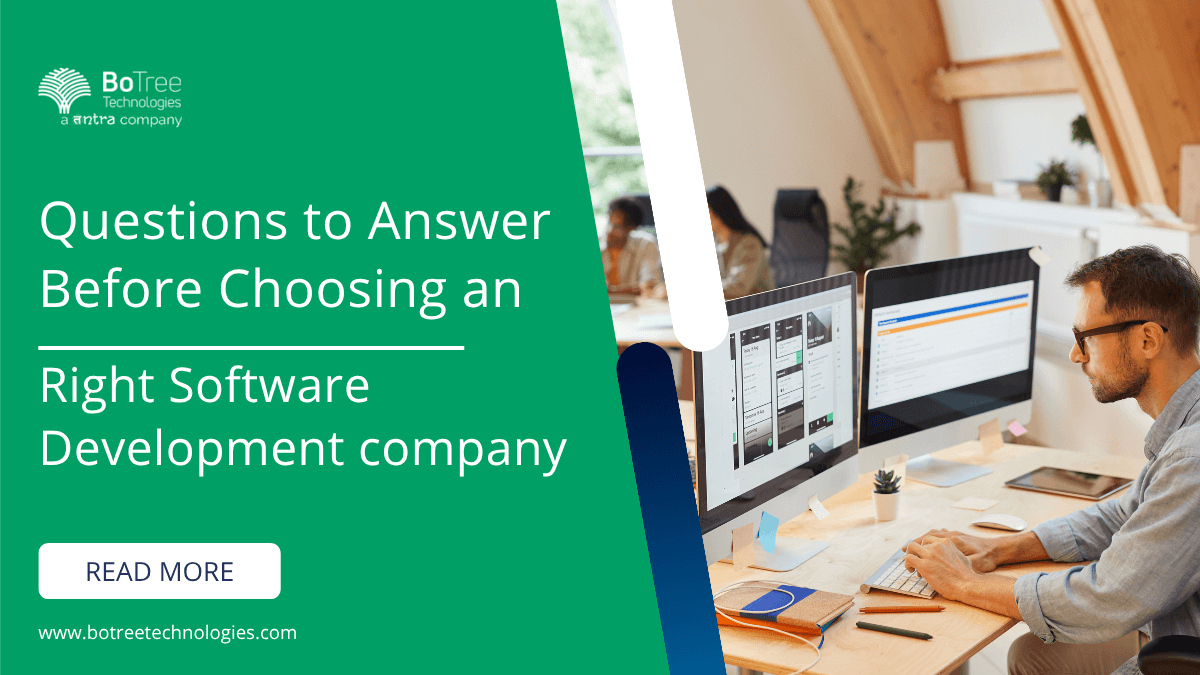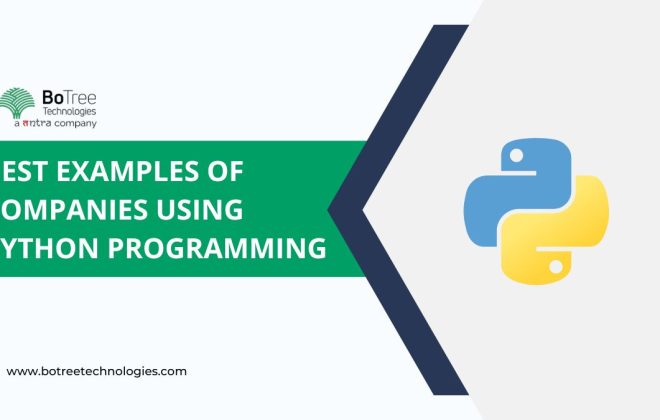
6 Questions to Answer Before Choosing an Right Software Development company
The choice of the best software development company can make or break the success of the project. The guide lists six major questions covering the project scope and objectives, where experience and expertise are evaluated, development methodology and communication practices are understood, where quality assurance and security are ensured, where transparent pricing and realistic timelines are compared, and where post-deployment support, scalability, and enhancement are confirmed. These will provide the clarity necessary to choose a trusted software-development partner who will always provide custom, high-quality solutions aligned with your business goals.
When about to invest time, money, and effort building digital products, the partner chosen is almost as important as the idea itself. A trusted software development company makes an idea a reality, shortens the road to market, and positions itself for growth. On the contrary, choosing the wrong software development partner means that the deadlines are missed, budgets inflated, and a product that does not solve your core problem.
Whether you need fit-for-purpose complete-cycle software development services for a new app or on-going support from a custom software development company to evolve a previous product, it all begins with asking the right questions. So, this guide will walk you through some such essential six questions, each carrying practical pointers, to help narrow down and ultimately choose the best software development company or premium software development agency suited to your unique needs. Let’s dive in.
1. What Is Your Project’s Scope and Objectives?
Before you start swiping through portfolios or asking for quotes, take a step back and clarify exactly what you want to build – and why. This isn’t about drafting a novel-length requirements document. It’s about having crisp goals so that when you approach any software development company, they can hit the ground running.
- Defining Clear Goals and Requirements
Start by outlining the core problem you’re solving. Are you automating an internal workflow? Launching a customer-facing mobile app? Migrating to cloud-based infrastructure as part of your digital transformation solutions? Jot down must-have features, target users, and success metrics (e.g., cut processing time by 50%, achieve 100k downloads in six months). This clarity will help any custom software development company provide accurate estimates for scope, effort, and cost – rather than surprise you with hidden fees or scope creep down the road. - Aligning Business Needs with Technical Solutions
Understanding your business priorities ensures you don’t overbuild or underinvest. If rapid time-to-market is crucial, a full-cycle software development company with Agile delivery and quick sprints might be your best bet. For highly regulated industries, you may need a partner with strict security and compliance practices baked into their software product engineering services. By aligning your business drivers – whether it’s scalability, low maintenance, or seamless UX – with a company’s technical strengths, you’ll find a partner who truly gets your vision.
2. Does the Company Have Relevant Experience and Expertise?
You wouldn’t ask a wedding planner to design your office – however, why hire a software team without proof they have worked on similar projects to yours? The right relevant experience pretty much makes the difference between a smooth project and expensive rework.
- Evaluating the Company’s Portfolio
Request case studies or code samples reflecting similar work: designing the best eCommerce platform for your industry or possibly performing complex API integrations that you will count on. A good portfolio does more than showcase pretty interfaces; it shows problem-solving ability, attention to detail, and the ability to deliver working software on time. And do not be shy – to get into the nitty-gritty, do ask them if you can take references or even speak to their past clients on your own to hear directly how the partnership was like. - Industry-Specific Knowledge
In fintech or healthcare or logistics, industry regulations and unique workflows may completely throw a project off its course if your choice of custom software consulting services is a generalist. A specialized consulting firm will be aware of compliance standards (like HIPAA or PSD2) and understand pain points faced by your competitors. They will show you the way to choose the right tech stack for your industry and prevent a glitch that would otherwise place the entire project in jeopardy.
3. What Is Their Development Process and Methodology?
A great idea needs a reliable engine to become a working product. That engine is a well-defined development methodology and transparent communication rhythm.
- Understanding Their Approach to Software Development
Look for companies that can clearly explain their process – whether it’s Agile, Scrum, Kanban, or Waterfall – and why that choice makes sense for your project. Agile and Scrum shine when delivering custom software development services in iterative cycles, giving you working features every few weeks. Waterfall can work if your project requirements are rock-solid from the start. Ask how they handle change requests and whether they build in regular retrospectives to improve as they go - Project Management and Communication Practices
Effective collaboration is critical – especially if your partner operates in a different time zone. Check which tools they use (Jira, Trello, Asana, Slack, Confluence) and how often they hold stand-ups or sprint reviews. A top software development company won’t leave you guessing about progress; they’ll share status reports, demo new features, and flag risks early. This transparency builds trust and ensures you stay aligned from day one.
4. How Do They Ensure Quality and Security?
Your product might just have that feature with which it builds up a reputation and possible litigation liability with it going further into the development lifecycle regarding quality assurance processes and security in testing.
- Quality Assurance Processes
Ask about their test strategy: unit test coverage, integration test coverage, automated end-to-end tests, performance/load testing, and manual exploratory tests. An excellent software vendor automates maximum tests for catching regressions early and can deliver fast-top-quality software. There must also be a process for defect tracking, and clear metrics like test coverage or mean time to resolution so you can access the quality of the project at any time - Security Measures and Compliance
Not only headline grabbers but can turn the customer trust upside down and drain by fines as well. Inquire about the secure coding standards they are using, as well as penetration and vulnerability scans they do before each release. If it is about compliance – for example, GDPR, SOC 2, or generally, industry-specific standards – ensure the partner has hands-on experience delivering that type of software. A reputed software development company makes security an indispensable component of their workflow.
5. What Are the Costs and Timeline?
Budget and schedule are sensitive topics – but they’re also non-negotiable. Asking the right questions upfront prevents sticker shock and ensures realistic expectations.
- Transparent Pricing Models
Different software development services firms price differently: fixed-price, time and materials, dedicated team, or milestone-based billing. A fixed-price model can feel safe for small, well-defined projects but often comes with change-request fees. Time and materials offer flexibility but require vigilant scope management. Discuss your risk tolerance and cash flow needs, and choose a model that balances predictability with agility. - Realistic Timelines and Milestones
Don’t settle for a partner who promises “six weeks from idea to production” unless they can back it up. Ask for a high-level roadmap with major milestones: design reviews, MVP delivery, beta launch, and full release. A full-cycle software development company will map dependencies, resource allocation, and buffer time for unforeseen delays. This level of planning helps you make informed decisions – like when to start marketing or schedule training sessions.
6. What Support and Maintenance Services are Offered?
Your product launch day isn’t the end; that’s actually where the fun begins. If you’re going to have a smooth-running software application and happy users, that same software now needs support.
- Post-Deployment Support
Look into what happens after going live. It should include what type of bug fix windows and emergency hotfix services as well as SLA commitments the company has for downtime. A company providing bespoke software development services should have very well defined service level agreements and response times so that any issue is known upfront as to how it would be prioritized and resolved. Whether it’s a hotfix needed within zero hours or a health check every month, make sure that support is built into your contract. - Scalability and Future Enhancements
Even the best MVP will change requirements such as new functionality, performance revisions, integration with third-party services, etc. Find out how these will be integrated into future growth plans of your partner. Is there a retention of really clean architecture and documentation? Will they be able to assemble new teams at short notice? The best software development firms will proactively prepare your next chapter while also putting your codebase in a position for easy enhancements-saving you time and money later.
Conclusion: Making an Informed Decision
The selection of a software development partner would, if not make, one time discarding a factor. This is a decision in strategy that can significantly alter the destiny of a product and the facade of a particular company. It would have provided the right questions for identifying the most appropriate software development company for you after determining the project scope, vetting experience, understanding development processes, knowing what the priorities are with regard to quality and security, agreeing on costs and timelines, and the defining ingredients of the support offerings.
Whether you are looking for services in custom software consulting, digital transformation solutions, or end-to-end software product engineering, taking the time to answer these six questions will pay off in efficiency, cost savings, and quality of the resulting product. So go ahead: make that shortlist, set up those discovery calls, and then sleep easy knowing you’ve asked the right questions upfront.
Tntra can help you understand the nuances and assist in making the right decisions. Contact our experts today.
Schedule a Call!
FAQs
How do I choose the right software development company for my project?
Evaluate factors like relevant expertise, development processes, pricing transparency, and commitment to security and support.
What questions should I ask before hiring a software development company?
Ask about their portfolio, methodology, QA practices, GDPR or industry compliance, and after-launch maintenance.
Why is industry-specific experience important in selecting a software development company?
A partner familiar with your sector understands compliance needs, typical workflows, and user expectations, leading to faster, more effective solutions.
How can I ensure the quality and security of the software developed?
Verify the company’s testing protocols – unit, integration, load testing – and ask about secure coding standards, penetration tests, and data encryption practices.
What should I expect in terms of post-deployment support?
Expect defined SLAs, bug-fix windows, emergency response procedures, and optional retainer agreements for ongoing feature work and scaling.




